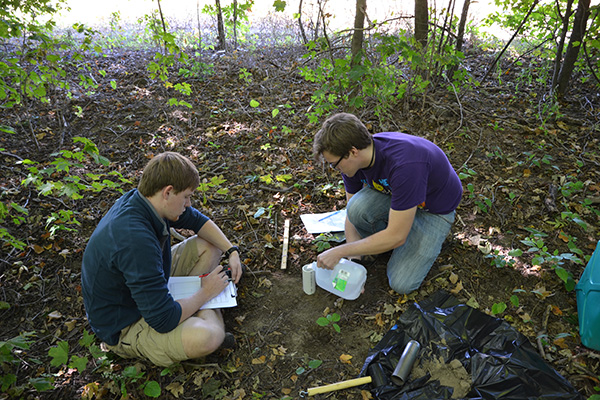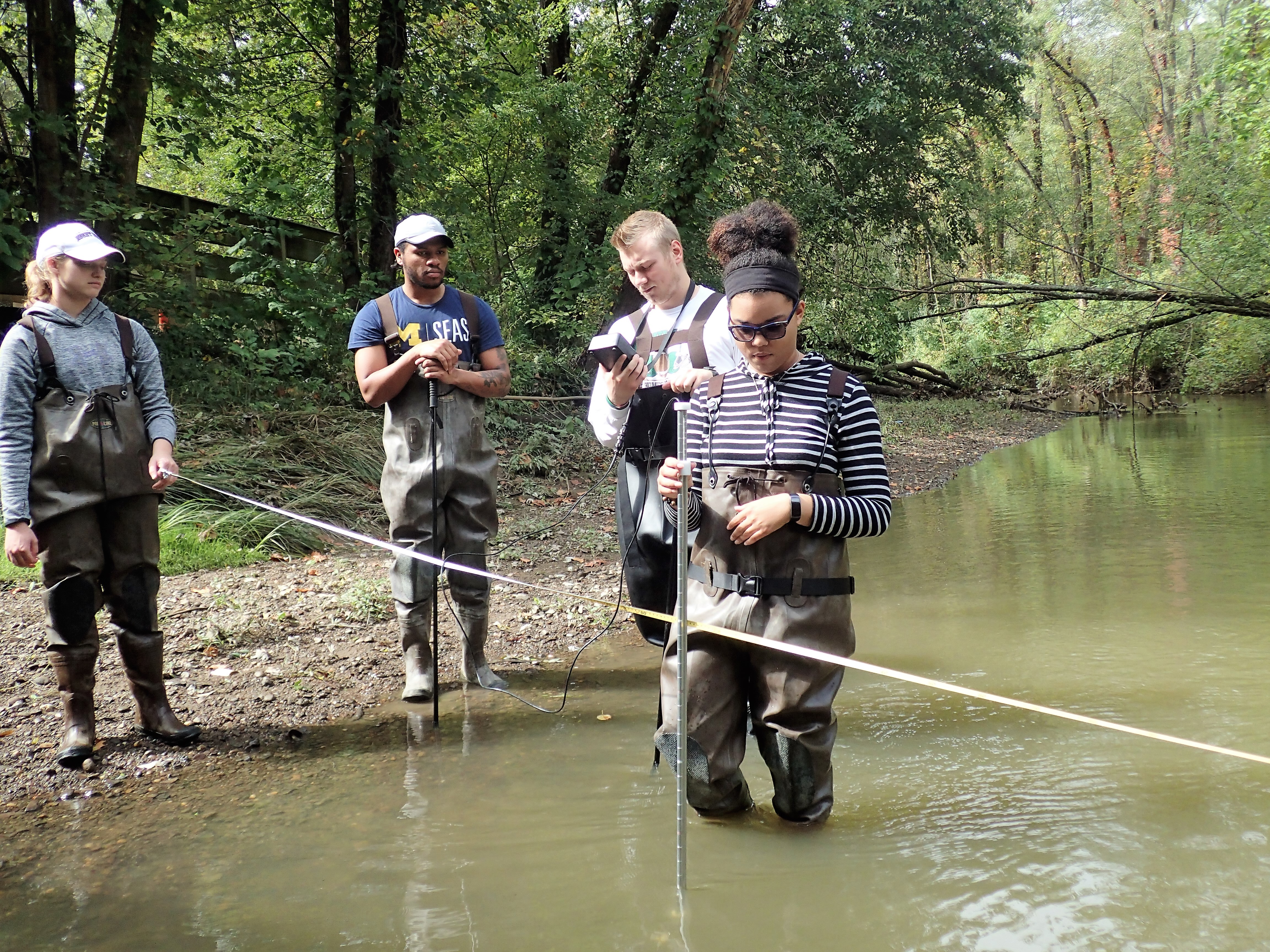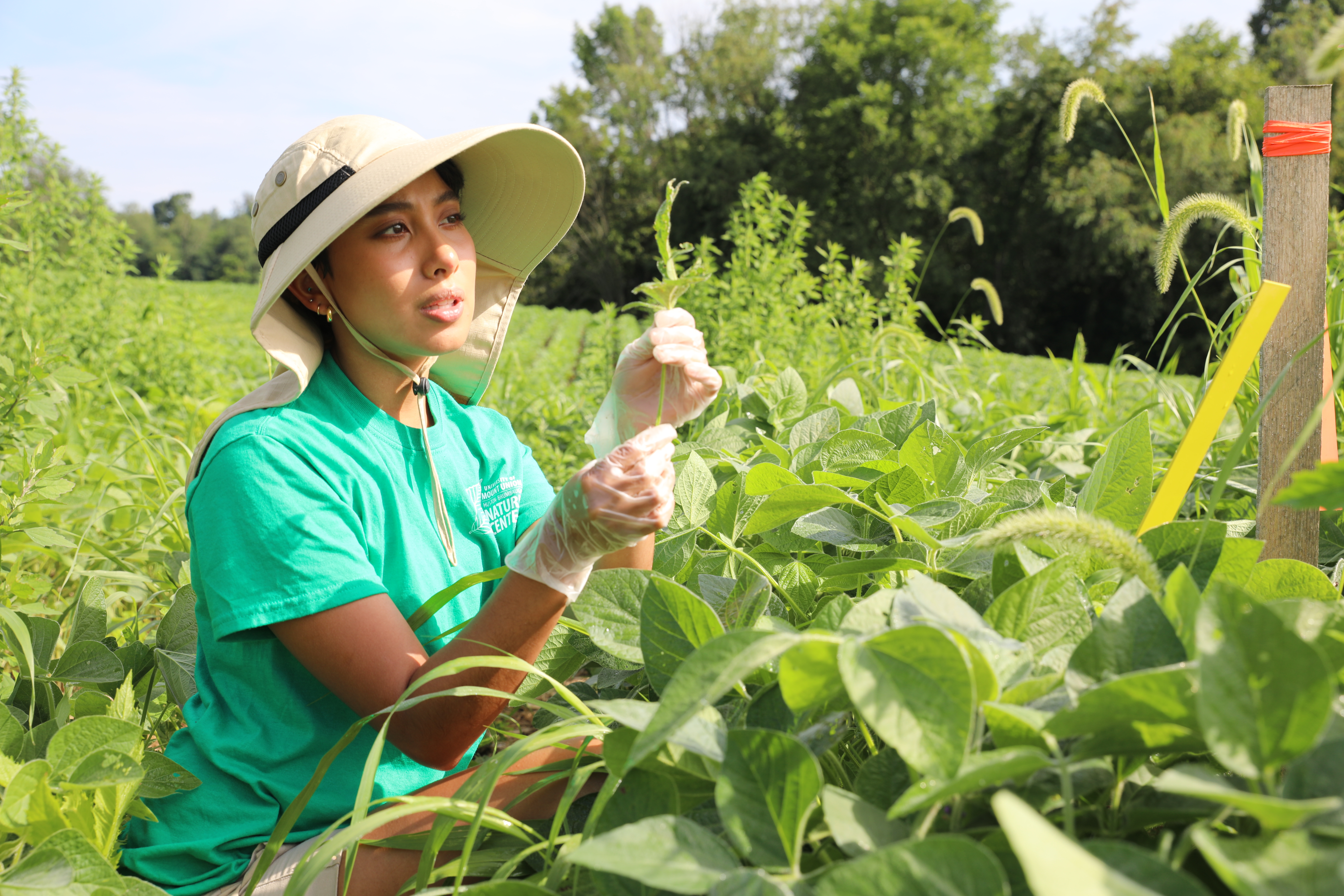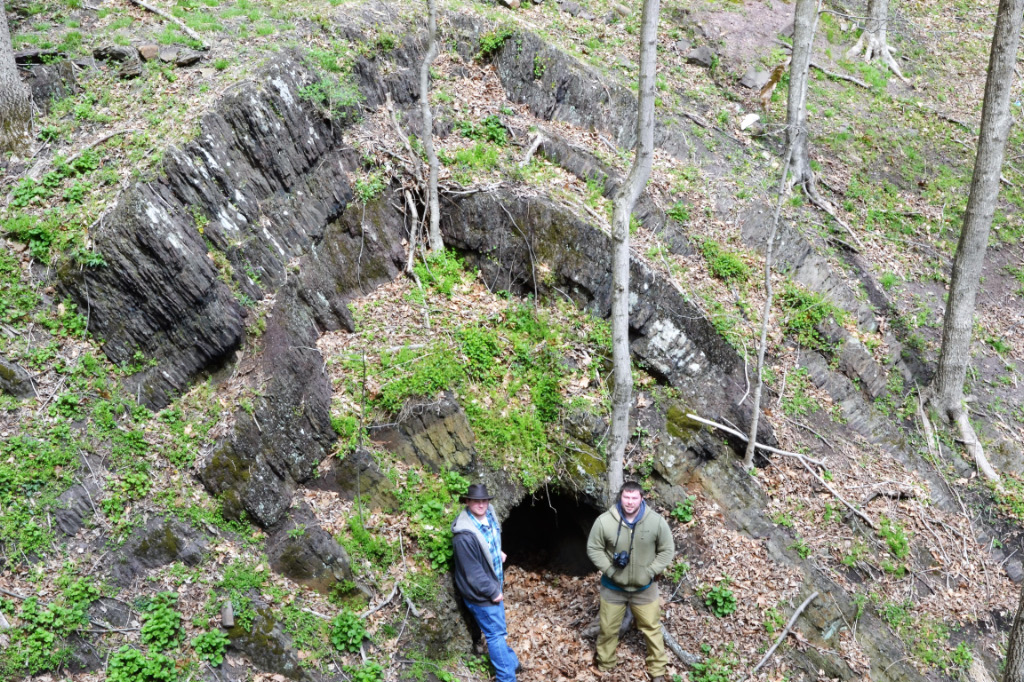Bachelor of Science in Environmental Science Degree
Pursue responsible citizenship as an environmentally informed professional, leader, team player, and problem-solver in Mount Union’s Bachelor of Science in Environmental Science degree program. Our heavily experience-focused, interdisciplinary approach equips you to thrive as you begin your career or advance your studies in graduate school.
Interdisciplinary Training
Encounter life as it influences and is shaped by land, water, sky, and—thanks to us—technology. Our environment is our most precious resource, and almost everything we do can build up, sustain, or damage it.
In the B.S. in Environmental Science, examine the components of environments—chemistry, water, landforms, soils, life forms, and more—in greenhouses and herbariums, nature centers and chemical instrumentation labs, ecology labs, and research forests. This wide-ranging expertise and experience plants seeds that will blossom in professional and graduate school settings, giving you deep roots from which to grow your career.
Learn More About the Environmental Science Major
Extend your passion for the environment with hands-on experience and professional potential. The Bachelor of Science in Environmental Science degree program at Mount Union exposes you to the past, present, and future of macro and micro environments in interdisciplinary field and lab studies. You’ll graduate with a robust understanding of your capacity and responsibility to change and protect environments for countless future generations.
Request information to keep exploring the environmental science major, or dig right in: apply today.
-
Curriculum
Environmental Science CurriculumExamine the interdisciplinary nature of environmental science while building a solid foundation in biology, chemistry, ecology, hydrology, and geology. In your electives, you’ll choose courses that fit with your professional goals—whether for your career or for graduate school—in areas like conservation biology, vertebrate zoology, aquatic ecology, analytical chemistry, environmental entomology, ecotoxicology, and environmental engineering. Review the full undergraduate catalog, including the internship in environmental science and hands-on case studies.
Learning Objectives
Through the environmental science major, you will:
- Demonstrate the ability to gather and analyze data that include biological, chemical, geological, and sociological aspects of environmental conditions and processes.
- Make appropriate use of scientific information and data including assessing reliability, interpreting results, and drawing reasonable conclusions.
- Apply scientific findings to address current environmental issues and concerns.
- Evaluate environmental issues and needs of society.
- Effectively communicate scientific knowledge.
- Identify and explain the principles of responsible conduct within the scientific community.
- Prepare the skills and aptitudes appropriate for securing employment or acceptance into graduate programs in environmental science or related fields of study.
-
Experiential Learning and Student Organizations
Environmental Science Experiential LearningOn your path to the Bachelor’s in Environmental Science degree, you’ll embrace ample opportunities for “real-world” experience outside of the classroom. Extracurricular opportunities, student organizations, internships, and field work help strengthen your skills and knowledge in environmental science, setting you up for career success. These opportunities include:
- Independent research
- Research with faculty or student peers
- Laboratory experience
- Internships
- Regional environmental projects
- Exclusive access to Mount Union’s Nature Center
- Long-term monitoring of hydrology and water quality in the Upper Mahoning River Watershed
- Field trips to Ball Research Forest and the LiMRod Marsh
- Membership in student organizations
Internships
Position yourself as a frontrunner for professional roles post-graduation with the experience and professional connections you’ll gain during an internship. While not a requirement of the environmental science degree, internship experience allows you to apply your in-classroom and in-lab experience in real-world contexts, giving you a broader basis from which to launch your career or apply to graduate school. Recent environmental science major internship employers have included:
- Ohio Environmental Protection Agency (EPA)
- Alliance Water Treatment Facilities
- Mahoning County office of OSU Extension
Student Organizations
Joining a student organization or student initiative gives you a chance to live out your principles on campus, collaborate with like-minded peers, and add to your resume additional evidence of your passion for and commitment to environmental causes.
Students for Environmental Awareness (SEA)
The student-led SEA organization provides students, faculty, staff, and community members the opportunity to work together to promote the protection of the environment, educate the public regarding environmental concerns, and encourage practices that benefit the earth. This organization is an active environmental group on campus and is open to all students.
Green Raiders (Sustainability Assistants)
If you have an interest in practicing and promoting sustainable living, you can become a Sustainability Assistant—a member of the student body who is interested in things like recycling, energy and water conservation, and environmental issues. As a Green Raider, your main purpose will be to educate your peers about the importance of living in a sustainable manner. This could take a variety of forms, such as conducting fun, informative residence hall programs, designing and installing educational bulletin boards, or organizing competitions between residents on each floor to see who can reduce the amount of waste they generate.
-
Careers
Environmental Science CareersOur livelihoods rely on the health of our environments. As environmental issues plaguing our planet become more stark, more initiatives are emerging to nurture environmental health and reverse damage caused by human industry.
Environmental science is a high-demand field, with faster-than-average growth and median annual salaries over $76,000 per the Bureau of Labor Statistics. This growth stems from multiple sources, including government roles, private consulting firms, and public institutions like universities, hospitals, and national research facilities, where environmental scientists are needed to identify issues and ensure compliance with stricter laws and increasing environmental regulations.
The bachelor’s in environmental science at Mount Union equips you to succeed in these vital roles, building on your in-depth training through hands-on field and laboratory experiences to launch and sustain a meaningful, world-altering career.
Common Professional Industries- Natural resources and conservation
- Public health
- Environmental monitoring and remediation
- Industrial environmental management
- Research and higher education
Common Careers- Environmental Project Coordinator
- Geospatial Developer
- Toxicity Laboratory Technician
- Public Health Practitioner
- Environmental Compliance Coordinator
- Researcher
- Professor
-
Facilities and Equipment
Facilities and EquipmentOur innovative laboratories and state-of-the-art equipment facilitate unique opportunities to interrogate environmental science concepts, promote faculty-student collaboration, and empower you to design and conduct research in the lab and in the field.
Bracy Hall
Bracy Hall houses Mount Union’s natural science departments (Biology, Biochemistry and Chemistry, Earth and Environmental Sciences, Physics, and Astronomy) and their associated classrooms and laboratories. In your environmental science degree courses, you will likely conduct research and experiments in the:
- Terrestrial and Aquatic Ecology lab
- Greenhouse and herbarium
- Physiology and Physiological Ecology lab
- Geographic Information System lab
- Chemical Instrumentation lab
Bracy Hall also hosts many leading-edge analytical instruments, including:
- NMR, IR, gas chromatograph, and atomic absorption spectrometers
- Scanning electron microscope
- Portable photosynthesis equipment
- Flow injection analyzer
- UV-Vis spectrophotometers
- Fluorescence microscopes
- X-ray diffractometer
Huston-Brumbaugh Nature Center
Our Huston-Brumbaugh Nature Center is a haven for environmental science field research and practice. The Nature Center is six miles south of campus and stretches across 162 acres, including old and new growth forests and ponds. As an environmental science major, you will study in the two classrooms and lab in the visitor center.
Another field site, the Ball Research Forest, is located 45 minutes from campus. This unglaciated environment provides a different geological and ecological setting for further field study and comparative research.






